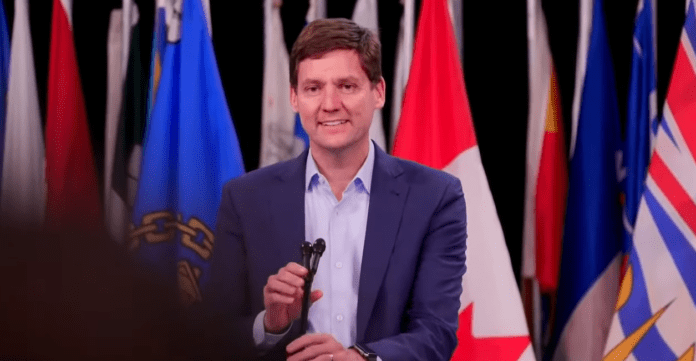The 2023 Union of British Columbian Municipalities convention wrapped up on Friday, the week-long event identified several shared concerns brought forward by municipal leaders.
The weeklong convention had thousands of municipal politicians in attendance to partake in debates and consultations, presentations, meetings and speeches with the provincial government.
To close the event, Premier Eby recapped key topics his government and local politicians discussed throughout the week with a promise to continue to work in partnership with municipalities to address their unique concerns.
“What I’ve heard is there are a number of challenges that we face together in this province. Some amazing things are happening, but boy, we face a lot of challenges right now.”
Eby said key challenges brought forward throughout the week involved wildfires, housing and mental health resources.
In response to wildfire and housing concerns, Eby announced multiple investments that include a $4.75 million allocation for rural firefighting teams and a $61 million investment to help local governments address housing shortages in their communities.
Eby said the growing number of concerns in the province can be credited to a quarter of a million person increase in the province’s population over two years, which he says has increased the demand for a variety of different responses.
“Rapid growth demands all kinds of responses, education, healthcare, housing which is in addition to the underlying housing challenges that we were already facing.,” he says. “My commitment to you is that the provincial government will pull our weight when it comes to making sure that we’re doing our work on this side.”
The next hot topic brought up during the convention surrounded public safety and decriminalization, according to Eby who emphasized that a balance is needed to ensure decriminalization has it’s intended goal as a tool in the fight against toxic drugs.
“The point of decriminalization is to get a doctor or a nurse between a predatory drug dealer and somebody struggling with addiction. It’s not a license for people to use hard drugs in playgrounds. It’s not a license for people to block the door of a hardworking business owner who’s just trying to make a go of it downtown. We need to find a balance in those things.”
Recognizing that there are better avenues to address someone with mental health and addiction disorders can be done through mechanisms that allow for police intervention when someone’s struggles impact community safety.
Eby said this is why the province asked for an amendment to the decriminalization policy that now prohibits the possession of drugs within 15 meters of play structures and other recreation areas.
In regard to rural communities, Eby said local politicians made it abundantly clear that a unique rural approach provides support to residents struggling with various health conditions with little to no resources available within their community.
In response to these concerns, Eby announced a $20 million commitment to the Canadian Cancer Society to ensure accessibility to life-saving treatments for patient’s province wide.
For mental health and addiction disorders, Eby said his government knows rural facilities are needed.
However, the solution is not an increase in funding, added Eby who says they have a billion dollar budget for mental health and addiction treatment.
“Our biggest challenge is the personnel to be able to deliver the programs that we want to be able to deliver. The psychiatric nurses, the psychiatrists, the addiction doctors, these are big challenges for us to be able to deliver programming.”
As a resolution to the staffing issue, Eby said his government has a health strategy that is looking into training opportunities, fast tracking the licensing process for health care workers and implementing return of service agreements for doctors to support underserviced areas.
“We’re looking to see if there is a way for us to provide certifications for people that would work under the supervision of health care professionals. Could there be a certificate program where people are able to work sort of like analogous to an LPN or a career aid to a registered nurse so we can get more people deployed faster to deliver this care?”
He said they’re taking the challenges head on by working with the Ministry of Mental Health and Addictions, the post-secondary education ministry, and the Ministry of Health to further investigate solutions that would increase the number of services and providers in all communities throughout the province.
Something going on in the Prince George area you think people should know about?
Send us a news tip by emailing [email protected].






